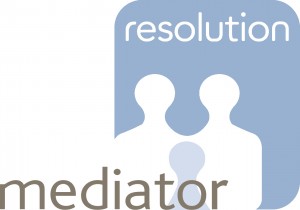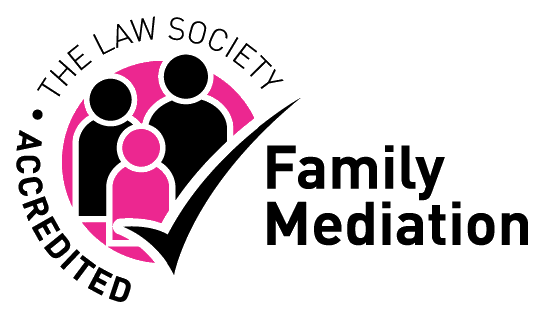Direct Consultation with Children
Direct consultation with children involves a Family Mediator who is trained as a child consultant talking with a children as a part of a Mediation in which arrangements are being made for children. We are qualified to speak to your child directly providing both parents feel this would be beneficial. The Mediator can chat with your children about their thoughts and feelings. This allows the children to provide their opinions to a neutral person. This can be particularly helpful if a child is saying different things to each parent.
Parents sometimes suggest that the child / children are involved in the Mediation process. Sometimes it is the child that makes the suggestion. It is important that parents understand the views, needs and desires of their children and involving them in the Mediation process may be a good way to do this. Children like to be informed and they appreciate having their views and options heard, although they need to understand that they are not responsible for the overall decision.
Involving children in Mediation can be very complex and a great deal of preparation is needed before a Mediator will speak to a child. Different considerations apply depending on the age, understanding and maturity of the child. The child and both the parents have to agree to the consultation. Children can say no to meeting the Mediator and no pressure should be placed upon them to do so it is the Mediator that has the final decision whether child consultation is appropriate/
We believe that most children appreciate the opportunity to be heard directly. But we do assure parents that children will not be asked to make choices or decisions and parental authority is respected.
We like to consider the consultation with the child as more a conversation / chat so that they feel at ease. It is important that parents know the Mediator is not undertaking a wishes and feelings assessment of their child /children. This is not a substitute for the role of CAFCAS within court proceedings (It is also still ‘without prejudice ‘so any discussions with a child cannot be referred to within court proceedings).
The discussion with the child / children is confidential from anyone including their parents.
Direct consultation with a child means the child talking face to face with the Mediator separately to the parents. What the child says is completely confidential from anyone else including their parents. Very often the child does have something that they want the Mediator to tell their parents, and that they would like the parents to take into consideration when making their decisions regarding child arrangements. Strictly with the child’s permission, the Mediator will then bring the child’s voice into the Mediation. Nevertheless, if the child simply wants to talk but then not have anything to pass on to the parents then the parents need to be aware there could be no feedback. If that is the case then the child may feel better for simply having that discussion.
Clearly children and young people need to be heard without fear of repercussions so they would not be asked to make difficult decisions and their discussions with the Mediator will be treated as confidential.
Where does it take place?
Due to insurance purposes we are only able to see and speak to the child/ children at our offices in Nottingham.
Would the Mediator see the child alone?
Yes, although the Mediator would have a ‘chaperon’ whom works for the firm present. Both Mediator and chaperon have enhanced DBS checks.
We understand that any meeting would need to fit around school. Often parents for the consultation with their child/children state it should take place in school holidays but if urgent then we can offer a time of 4pm (our business hours are 9-5 Mon to Fri.)
If there is feedback to be given to the parents it would normally take place the next day or after the meeting, if appropriate. The Mediator will meet up with parents and incorporate this into the Mediation, enabling the children’s views to be taken into account before final decisions are made.
The child will decide what information they want their parents to receive at the ‘feedback’ meeting. For many parents there are no great surprises and they are reassured that they are on the right track in helping their child. Sometimes though an important piece of information comes to light that might have been missed if the child or young person had not had the chance to speak to someone outside the family.
Arrangements for when the children come; who brings them; where people wait; how feedback will be communicated to parents; etc. will all be addressed with parents as part of the preparation process Children are invited to attend but may choose not to.
Who is the Mediator?
One of our accredited Family Mediators, Daniel Priest, has undertaken specialist training for direct consultation with a child. He will decide after a discussion with the parents whether or not it is appropriate and to carry out a consultation with a child.
How long is the consultation?
The child can either meet with the Mediator who is already working with the parents or, as often happens, with a different Mediator. Consultations with a child usually last approximately 45 minutes. Siblings will be seen separately or together depending on what the children themselves prefer and also what the parents believe to be most appropriate.
How old should the child be?
Children should generally be aged 10 years and over, but in exceptional circumstances younger children may be seen. The government has recently suggested that children aged 10 and above should generally have access to a Mediator when questions about their future are being discussed in Mediation.
Research:
An NSPCC survey (2007) of children in private law cases found that they frequently felt disempowered but that having a say made a difference to the outcome.
A survey by CAFCASS (2011) found that where children and young people were not happy with the outcome of their parents’ separation it was mainly because they felt they had little input into the process or their views were not taken into account.
Research with children and young people shows they want opportunities to be heard often feeling powerless in times of family change. They find themselves with arrangements which they are forced to accept –sometimes feeling marginalised, frustrated, angry, alienated and confused.
Parents sometimes say they don’t know how or when to talk to children about their separation (too painful and too difficult) They can think that by not involving the children in what’s happening they are protecting them or it is adult’s business and adults know best. A common view can be that think they know what their children would say anyway. A child’s perspectives may well be different.
There always has to be careful discussion between the Mediator and both parents before involving a child in Mediation. It may simply not be appropriate, for example children with certain difficulties or needs that wouldn’t lend it well to a consultation, very entrenched, high conflict cases.







Find us on Social